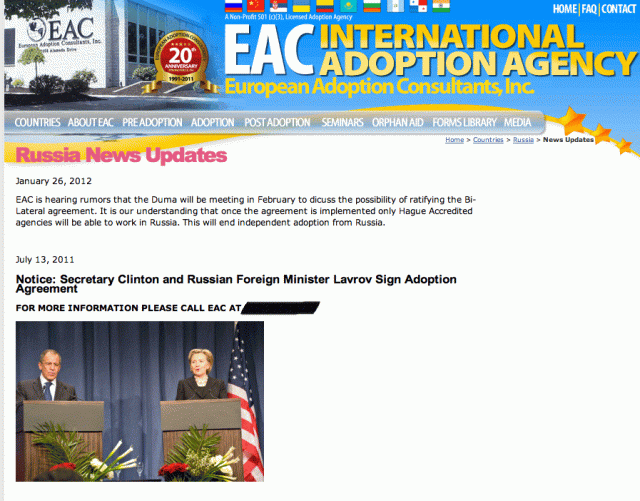The Russian-American bilateral adoption agreement has been passed by the lower house of the Russian legislature, which is called the Duma.
Now, it goes for further review and debate in the upper house, which is called the Federation Council. The Federation Council does not reconvene until September of 2012.
Note that many laws are never even considered by the Federation Council. Also note that if any change enters the agreement, it must be sent back to the United States for approval.
If and when the agreement is cleared by the Federation Council, it must then be signed by President Putin.
Given controversies over issues such as the Ranch for Kids and photo listings of kids, it is not clear the remaining ratification steps will proceed quickly. Pay close attention to the fact that it took almost a year to the day to get it to the first step.
The final step is for the US and Russia to get together and try to work out how the agreement will be implemented. If it is true the Russians want powers of inspection of children and retroactive effect, this could be a while in coming.
